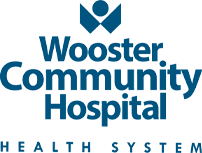
Breastfeeding is best for both a mother and her baby. It is an experience that creates a unique bond between the two and gives the baby all the essential nutrients and antibodies. However, it can be challenging for new mothers, especially if there are special circumstances involved.
Breastfeeding is an essential and rewarding experience that provides numerous health benefits to both the mother and the baby. However, special circumstances like premature babies, adoption, and medical conditions can make it more difficult. Mothers can overcome these challenges with proper support, preparation, and management.
Let’s explore some of these common special circumstances and some helpful tips and resources for breastfeeding mothers.
Breastfeeding for Premature Babies
Premature babies are born before 37 weeks of gestation, and they may have a host of complications that require special care, including feeding. Babies born prematurely may have difficulty latching, sucking, and swallowing, and may need to be fed through a tube or supplemented with breastmilk.
Mothers of premature babies can use a breast pump to stimulate milk production and provide breastmilk to the baby. It is essential to work closely with a lactation consultant and healthcare provider to ensure the baby gets adequate nutrition.
Breastfeeding for An Adopted Baby
Breastfeeding an adopted baby is possible, but it requires planning and preparation. Adoptive mothers can use a breast pump to stimulate milk production and follow a schedule to increase milk supply. Also, supplemental nursing systems and nipple shields can help the baby learn to latch correctly. Adoptive mothers can also consider inducing lactation through medication or hormone therapy.
Again, it is crucial to work with a lactation consultant and healthcare provider to ensure the baby gets the necessary nutrition.
Breastfeeding Despite a Medical Condition
Some medical conditions can affect breastfeeding, but in most cases, it is possible to breastfeed with proper support and management. Mothers with diabetes, HIV, and thyroid disorders may have difficulty breastfeeding and require extra care. Medications, surgical procedures, and other treatments may also affect milk supply and quality, but alternatives like pumping and supplementing with formula can help meet the baby’s nutritional needs.
Breastfeeding For Working Mothers
Returning to work can be a challenge for breastfeeding mothers, but it is possible with planning and preparation. Employers are now required by law to provide reasonable accommodations for breastfeeding mothers like pumping breaks and a private space to express milk. Mothers can also store breastmilk in a refrigerator or freezer and create a pumping schedule that works for them. It is essential to communicate with the employer and coworkers about their breastfeeding needs and rights.
Routine Challenges
Breastfeeding can be challenging even without special circumstances, and new mothers may experience difficulties like sore nipples, engorgement, and mastitis. Mothers can prevent and manage these issues by ensuring proper latch and positioning, using warm compresses and massage, and seeking support from a lactation consultant or support group.
Lactation Consultant in Wooster, Ohio
It is often crucial to work with a lactation consultant and healthcare provider to ensure the best possible outcomes for both the mother and the baby. At the Women’s Pavilion at Wooster Community Hospital, our highly skilled and experienced team of lactation consultants provides breastfeeding services, support, and resources to help new mothers navigate the breastfeeding journey successfully. These services include:
- One-on-one breastfeeding consultations: Lactation consultants offer individualized support and guidance to address any challenges or concerns that mothers may have with breastfeeding. These private consultations can help with issues like latching difficulties, low milk supply, or pain during breastfeeding.
- Telehealth services: Wooster Community Hospital also offers telehealth consultations with lactation consultants, providing convenient access to breastfeeding support through an app on your smartphone, computer, or tablet, from the comfort of your own home. These telehealth consultations are available by appointment 24 hours a day.
- Return-to-work support: Lactation consultants at the hospital can provide guidance and assistance for mothers who are planning to return to work but want to continue breastfeeding. They can help with strategies for pumping and storing breast milk, as well as maintaining milk supply.
- Breastfeeding education and classes: Wooster Community Hospital offers breastfeeding education programs and classes for expectant and new mothers. These sessions cover topics such as proper latch techniques, positioning, and troubleshooting common breastfeeding challenges.
To learn more about the specific breastfeeding services provided by our lactation consultants at Wooster Community Hospital, you can visit their website or contact them directly at (330) 202-5567.

 Cancer Care
Cancer Care
 Rehabilitation
Rehabilitation
 Women's Health
Women's Health
 Behavioral Health
Behavioral Health
 Cardiovascular Care
Cardiovascular Care
 Surgery
Surgery


